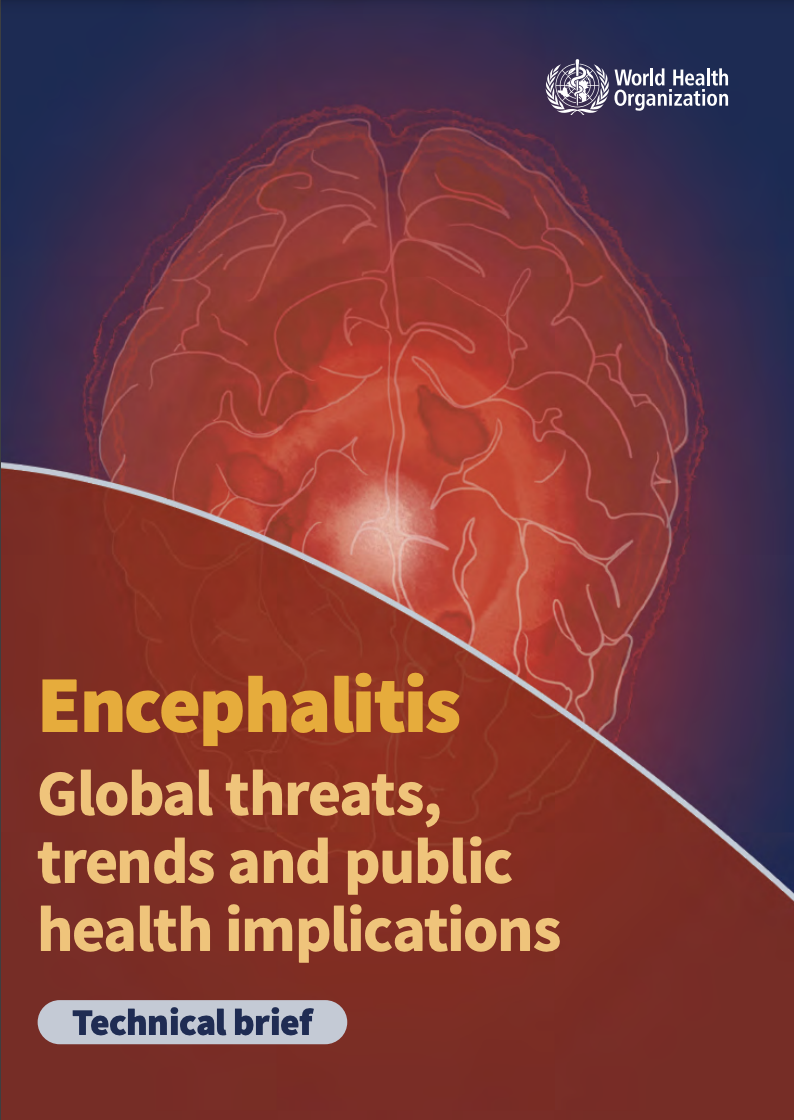Encephalitis International, a nonprofit organization, funded a technical brief recently released by the World Health Organization (WHO) in recognition of World Encephalitis Day on February 22. The brief identifies encephalitis, a life-threatening brain inflammation, as a growing global threat and urgent public health issue due to its high mortality, disability burden, and economic impact.

The technical brief outlines key actions to improve prevention, data collection, diagnostics, treatment, aftercare, awareness, and research innovation. It calls on health professionals, policymakers, and global stakeholders to take action and implement recommendations to save lives and reduce disability from encephalitis.
“Encephalitis is an increasing global threat. Without urgent attention and investment, we will see more needless deaths and disability from the condition,” said Dr. Ava Easton, Chief Executive of Encephalitis International. “The launch of this Technical Brief is a critical step toward addressing the gaps in awareness, diagnosis, and treatment. It provides a roadmap for policymakers and healthcare professionals to strengthen surveillance, improve patient care, and drive much-needed research. Encephalitis can no longer be ignored—we must act now to prevent avoidable suffering and loss.”
“The WHO Encephalitis Technical Brief aims to focus attention on the increasing global threat of encephalitis, prevention strategies, and existing gaps in diagnosis, treatment, and care, which will help enable more people affected to receive the treatment and support they need to live fulfilling and healthy lives,” said Dr. Tarun Dua, Head of the Brain Health Unit at WHO. “By strengthening surveillance, expanding access to timely and accurate diagnosis, and ensuring that encephalitis is prioritized within national healthcare frameworks, we can improve outcomes for millions of individuals worldwide. Urgent collaboration across governments, healthcare systems, and researchers is essential to addressing this growing health challenge.”
Multiple Factors Driving Global Threat
Low awareness of encephalitis remains a major challenge, leading to delayed diagnosis and treatment, which increases mortality and complications. The brief, however, highlights that encephalitis is expected to spread further due to several key factors:
-
Rising population density increases the spread of encephalitis, especially in resource-limited settings where overcrowding and healthcare shortages make prevention and treatment more difficult.
-
Emerging and re-emerging infections introduce new encephalitis-causing pathogens or revive old ones, challenging surveillance and response efforts while increasing the risk of outbreaks.
-
Vaccine hesitancy reduces immunization coverage, weakening protection against preventable causes of encephalitis and contributing to disease resurgence.
-
Climate change shifts environmental conditions, expanding the habitat of disease-carrying vectors such as mosquitoes and ticks, increasing the transmission of vector-borne encephalitis.
-
Urbanization accelerates human encroachment into natural habitats, increasing exposure to animal-borne pathogens while also straining sanitation and healthcare systems, further driving encephalitis cases.
Hidden Burden in Low-to-Middle-Income Countries Like the Philippines
The true global burden of encephalitis remains unknown, particularly in low-to-middle-income countries (LMICs) like the Philippines, where health services and resources are often limited. Many patients require intensive care with trained neurological staff, but specialized neurology units are scarce. Even where facilities exist, patients may need to travel long distances for treatment. Limited access to essential medications, inadequate supply chains, and regulatory challenges further hinder treatment, leaving many without proper care.
Beyond medical challenges, the economic and social burden of encephalitis is severe. The high cost of treatment, coupled with lost income and long-term brain and nerve damage, places a heavy strain on families. Disabilities resulting from encephalitis, including cognitive and motor impairments, further impact quality of life and productivity. Addressing these issues requires stronger encephalitis research, focusing on disease burden, health economics, long-term outcomes, and improved health information systems to support better prevention, diagnosis, and care.
Reducing the burden of encephalitis requires a multifaceted approach, starting with vaccination strategies, robust surveillance systems, and stronger health systems. Advancing medical and public health research is essential to drive new solutions, while public awareness and education can help prevent cases, improve early detection, and foster greater understanding of the condition.
“Our recent research has shown that many of the interventions needed to improve diagnosis and treatment of encephalitis are not particularly expensive. A lot of it is about increasing surveillance and recognition of the condition, providing simple equipment for early diagnosis, and making sure the right treatments, many of which are very affordable, are available,” said Professor Tom Solomon CBE, President of Encephalitis International and advisor to the WHO.
The condition must also be prioritized in global and national health agendas, with increased resources for targeted interventions and collaboration among public and private stakeholders. These combined efforts can reduce the disease burden, improve outcomes for those affected, and strengthen health systems to better respond to this growing health threat.
To support the recommended actions from the technical brief, Encephalitis International has launched a pilot appeal “Count Down to Change”. The appeal aims to raise £50,000 (approximately ₱3,667,260) to kickstart a fund dedicated to implementing these actions.
The Technical Brief by WHO and Encephalitis International can be accessed and downloaded through this link.




